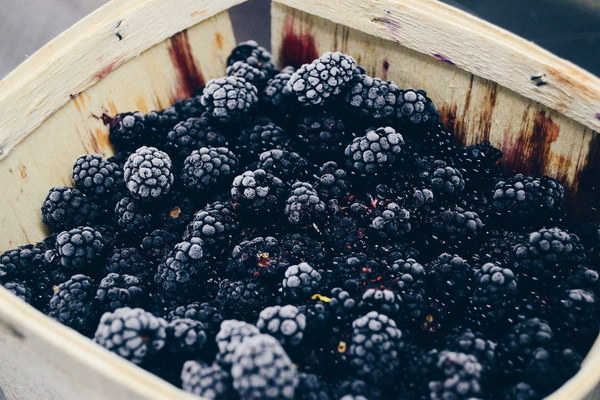Revitalize Your Menstrual Cycle A Comprehensive Guide to Menstrual Diet and Nutrition
Introduction:
The menstrual cycle is a natural process that plays a crucial role in a woman's reproductive health. However, it can sometimes be accompanied by discomfort and irregularities. To promote a healthy menstrual cycle, it is essential to focus on a well-balanced diet that provides the necessary nutrients to support hormonal balance and overall well-being. This article will explore the benefits of menstrual diet and nutrition, providing you with valuable insights on how to optimize your eating habits for a more comfortable and regular menstrual cycle.
1. Understanding the Menstrual Cycle:
The menstrual cycle is divided into four phases: the follicular phase, ovulation, the luteal phase, and menstruation. Each phase requires different nutrients to support the body's hormonal fluctuations and reproductive functions.
1.1 Follicular Phase:
During this phase, the body prepares for ovulation by developing multiple follicles in the ovaries. A diet rich in vitamin E, omega-3 fatty acids, and antioxidants can help support this process. Foods such as nuts, seeds, avocados, and leafy greens are excellent sources of these nutrients.
1.2 Ovulation:
Ovulation is the process where a mature egg is released from the ovary. To optimize this phase, consume foods high in vitamin C, such as citrus fruits, bell peppers, and strawberries, which can help improve egg quality and increase fertility.
1.3 Luteal Phase:
The luteal phase is characterized by the growth of the corpus luteum, which produces progesterone. This phase requires a diet rich in magnesium, calcium, and vitamin B6 to support progesterone production. Foods like leafy greens, nuts, seeds, and whole grains are excellent sources of these nutrients.
1.4 Menstruation:
During menstruation, the body is shedding the uterine lining. It is important to consume a diet rich in iron, vitamin C, and folic acid to support blood production and prevent iron deficiency. Foods such as lean meats, beans, lentils, and fortified cereals are great sources of these nutrients.
2. Hydration and Electrolytes:
Proper hydration and electrolyte balance are essential throughout the menstrual cycle. Water helps maintain blood volume, which can help reduce cramps and bloating. Electrolytes, such as magnesium, calcium, and potassium, play a crucial role in muscle function and can help alleviate menstrual discomfort. Incorporate foods like bananas, oranges, and coconut water into your diet to ensure adequate hydration and electrolyte balance.
3. Anti-inflammatory Foods:
Inflammation can exacerbate menstrual symptoms such as cramps and bloating. Incorporate anti-inflammatory foods into your diet, such as omega-3 fatty acids, flaxseeds, and ginger. These foods can help reduce inflammation and promote a more comfortable menstrual cycle.

4. Foods to Avoid:
Certain foods can exacerbate menstrual symptoms and disrupt hormonal balance. It is best to avoid or limit the consumption of caffeine, alcohol, processed foods, and high-sugar foods, as they can contribute to bloating, mood swings, and irregular cycles.
5. Mindful Eating and Portion Control:
Eating mindfully and maintaining portion control can help regulate blood sugar levels and prevent fluctuations in energy and mood. Focus on eating smaller, balanced meals throughout the day to support a healthy menstrual cycle.
Conclusion:
A well-balanced menstrual diet and nutrition can significantly improve your menstrual cycle's overall health and well-being. By incorporating a variety of nutrient-rich foods, staying hydrated, and avoiding inflammatory and disruptive foods, you can optimize your menstrual cycle and experience a more comfortable and regular period. Remember, it is always best to consult with a healthcare professional or a registered dietitian for personalized advice and guidance.









